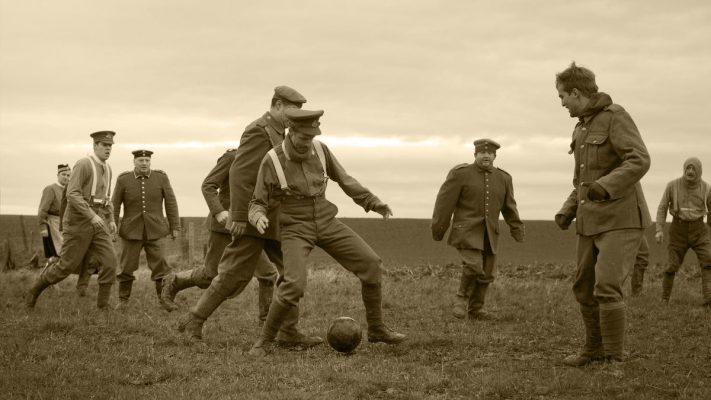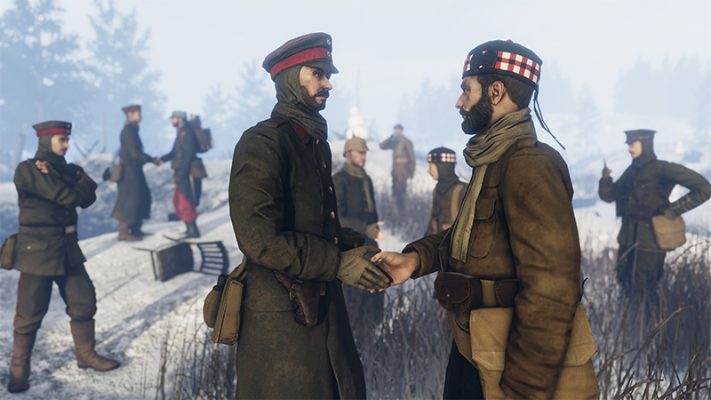

The Frontlines of Freedom team wishes you a very Merry Christmas!
Christmas is an annual festival commemorating the birth of Jesus Christ, observed primarily on December 25 as a religious and cultural celebration among billions of people around the world. Although the month and date of Jesus’ birth are unknown, the church in the early fourth century fixed the date as December 25.
Here are two interesting stories of combat and Christmas.
Early in our Revolutionary War we hadn’t won many battles, but Gen George Washington was far from giving up. On 25 Dec 1776, General George Washington crossed the Delaware River with 5,400 troops, hoping to surprise a Hessian force celebrating Christmas at their winter quarters in Trenton, New Jersey. The unconventional attack came after several months of substantial defeats for Washington’s army that had resulted in the loss of New York City and other strategic points in the region.
At about 11 pm on Christmas, Washington’s army commenced its crossing of the half-frozen river at three locations. The 2,400 soldiers led by Washington successfully braved the icy and freezing river and reached the New Jersey side of the Delaware just before dawn. The other two divisions, made up of some 3,000 men and crucial artillery, failed to reach the meeting point at the appointed time.
At approximately 8 am on the morning of December 26, Washington’s remaining force, separated into two columns, reached the outskirts of Trenton and descended on the unsuspecting Hessians. Trenton’s 1,400 Hessian defenders were groggy from the previous evening’s festivities and underestimated the Patriot threat after months of decisive British victories throughout New York. Washington’s men quickly overwhelmed the Germans’ defenses, and by 9:30 am the town was surrounded. Although several hundred Hessians escaped, nearly 1,000 were captured at the cost of only four American lives. However, because most of Washington’s army had failed to cross the Delaware, he was without adequate artillery or men and was forced to withdraw from the town.
The victory was not particularly significant from a strategic point of view, but news of Washington’s initiative raised the spirits of the American colonists, who previously feared that the Continental Army was incapable of victory.
The US declared war on Germany on April 6, 1917, nearly three years after WWI started. Before entering the war, the US had remained neutral, though it had been an important supplier to the United Kingdom, France, and the other powers of the Allies of WWI. And WWI had a Christmas Truce. Just after midnight on Christmas morning, Dec 25, 1914, the majority of German troops engaged in WW I cease firing their guns and artillery and commence to sing Christmas carols. At certain points along the eastern and western fronts, the soldiers of Russia, France, and Britain even heard brass bands joining the Germans in their joyous singing.
At the first light of dawn, many of the German soldiers emerged from their trenches and approached the Allied lines across no-man’s-land, calling out “Merry Christmas” in their enemies’ native tongues. At first, the Allied soldiers feared it was a trick, but seeing the Germans unarmed they climbed out of their trenches and shook hands with the enemy soldiers. The men exchanged presents of cigarettes and plum puddings and sang carols and songs. There was even a documented case of soldiers from opposing sides playing a good-natured game of soccer.
The so-called Christmas Truce of 1914 came only five months after the outbreak of war in Europe and was one of the last examples of the outdated notion of chivalry between enemies in warfare. In 1915, the bloody conflict of WWI erupted in all its technological fury, and the concept of another Christmas Truce became unthinkable.






